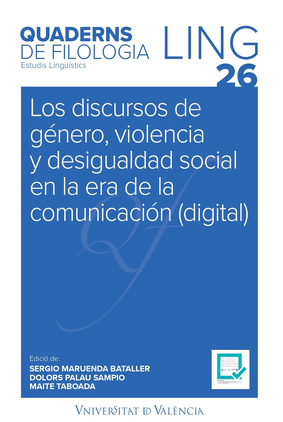Neighbors, policemen or experts? The informative sources in the news about femicides
DOI:
https://doi.org/10.7203/qf.0.21984Keywords:
femicides, media, news, information sources, violence against women. Abstract
Abstract
The proper use of information sources has traditionally been identified as one of the most relevant elements when reporting on gender-based murders. However, in most cases, these informative treatments have rarely resorted to experts who offer a more social view of the event. This article collects the results of an investigation in which 381 news published in the seven main newspapers of the Basque Country regarding femicides that occurred between 2015 and 2017 were analyzed. Likewise, ten interviews were conducted with media editors. The results of the investigation show that the neighborhood and families continue to be the most common source of information, ahead of political institutions and feminist associations, and police and judicial sources. For their part, media editors are aware of the dangers of using the neighborhood as a source of information, and they recognize the difficulties for the correct coverage of this type of information derived from journalistic routines.
 Downloads
Downloads
Downloads
Published
How to Cite
-
Abstract1582
-
PDF (Español)889
Issue
Section
License
 Este obra está bajo una licencia de Creative Commons Reconocimiento-NoComercial-SinObraDerivada 4.0 Internacional.
Este obra está bajo una licencia de Creative Commons Reconocimiento-NoComercial-SinObraDerivada 4.0 Internacional.
Authors who publish with this journal agree to the following terms:
- Authors retain copyright and grant the journal right of first publication with the work simultaneously licensed under a Creative Commons Attribution License that allows others to share the work with an acknowledgement of the work's authorship and initial publication in this journal.
- Authors are able to enter into separate, additional contractual arrangements for the non-exclusive distribution of the journal's published version of the work (e.g., post it to an institutional repository or publish it in a book), with an acknowledgement of its initial publication in this journal.
- Authors are permitted and encouraged to post their work online (e.g., in institutional repositories or on their website) prior to and during the submission process, as it can lead to productive exchanges, as well as earlier and greater citation of published work (See The Effect of Open Access).




